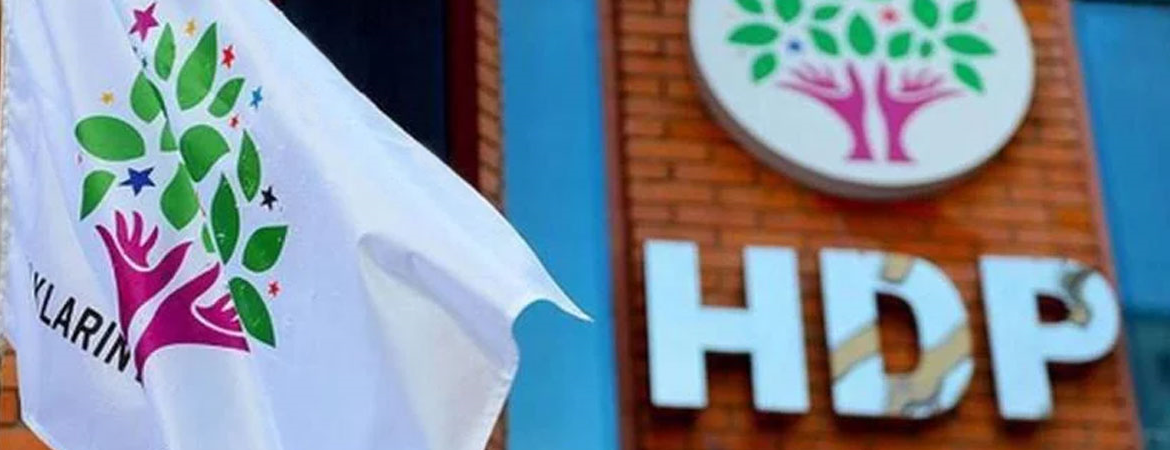
Statement by our Foreign Affairs Spokespersons Feleknas Uca and Hişyar Özsoy:
Turkish foreign policy towards Europe and the West, in general, has been marked with different forms of threats and blackmailing over the last few years. One recent example of such policy is Turkey’s threatening to prevent the membership of Finland and Sweden to the NATO with the claim that these two countries support organizations that Turkey views as terrorists, namely Kurdistan Workers' Party (PKK) and Peoples’ Protection Units (YPG).
Turkey, Sweden, and Finland met in Madrid and signed a trilateral memorandum on 28 June 2022 to address Turkey’s “security concerns,” including Turkey's pending extradition requests for “terror suspects.” As a result of this agreement and in clear violation on international law, on December 2, Sweden extradited a Kurdish refugee, Mahmut Tat, who was sentenced in Turkey on terrorism-related charges.
Mahmut Tat was a bus driver in Dersim (Tunceli), a Kurdish city in Turkey. In 2015 he was given a prison sentence of six years and ten months for terrorism-related charges. Upon receiving this sentence, he sought asylum in Sweden. Three years after applying for asylum, Tat was invited by Sweden’s immigration agency and told that his application had been rejected and taken over by the Swedish intelligence agency. According to Tat, Swedish authorities told him that he was a “dangerous” person for their country because Turkey wanted him. However, he said in his defense that all he had done was to take part in “two democratic protests” in Turkey, and these protests have resulted in accusations of terrorism. After the extradition, Tat was arrested in İstanbul on 3 December. Tat was not even in the list of people whom the Turkish government wants to be extradited.
Joining democratic protests surely is not a crime, but it has been so in Turkey since the government’s termination of the peace process with the Kurdish movement in 2015. Since then political activities of the Peoples’ Democratic Party (HDP), which is the third biggest party representing about 6 million voters in the Turkish parliament, have been unlawfully criminalized as “supporting terrorism.” Many Kurds have been arrested for simply joining regular activities of the HDP, democratic and peaceful protests, or even for posting a message critical of the government on Facebook or Twitter.
After the abortive coup in July 2016, Turkey was ruled under emergency rule for two years. Emergency rule was formally lifted in July 2018, yet emergency rule practices such as arbitrary detentions, torture, bans on peaceful protests, violations of freedom of expression and freedom of the press continue in the country in full force. In this process, over 80,000 citizens of Turkey, including more than 6,000 Kurdish citizens – HDP’s co-chairs, several members of parliament, over one hundred elected mayors, trade unionists, civil society representatives, journalists, academics, lawyers, activists, and students - have been arrested with groundless terrorism-related charges. There is no separation of powers, no independent judiciary, and no conditions for fair trial in Turkey. With the pretext of fighting terrorism and coup plotters, the government has been using a thoroughly politicized and militant judiciary to silence the democratic opposition, arresting HDP’s politicians and activists in particular, with terrorism-related charges and arbitrary decisions. Additionally, as various independent human rights organizations as well as organs of the Council of Europe (CoE) and the United Nations have documented, many of these people were tortured. The Committee for the Prevention of Torture and various human rights organizations have repeatedly reported that there are systematic rights violations and torture in Turkish prisons.
Turkey has become a country where all kinds of democratic protest and criticism against the government are treated as “terrorist crimes”. Turkey’s anti-terrorism laws, which were already anti-democratic, have been amended, widening even further the scope of what is considered as terrorism so that every critical voice against the government can be labeled as a terrorist activity. The fact that the definition of terrorism is so comprehensive and vague has been frequently referred to in Turkey’s membership negotiations with the EU, and Turkey has been asked to amend its counter-terrorism law in line with EU standards. Reports by the European Parliament, European Commission and the Council of Europe all have criticized the arbitrary detention of government opponents on vague terrorism-related charges. Also, the ECtHR has convicted Turkey countless times for such detentions, most recently in the cases of former HDP co-chair Selahattin Demirtaş and HDP deputies versus Turkey.
Given this political context and background, it is so sad and shameful that a country such as Sweden, which has been one of the building blocks of European democracy, adopted an inhumane attitude in the face of Turkey's threats. The Kurds and pro-democracy people in Turkey and abroad have received the news of Mr. Tat’s extradition with disappointment. Setting aside values such as democracy and human rights, on which the EU and the CoE were built, and making deals in violation of international law, the humanitarian law on refugees in particular, do not simply hurt the Kurds. If not prevented, such erosion of democratic values and international law will corrupt and destroy European democratic values and institutions from the inside.
We call upon the international community not to remain silent in the face of such sacrifice of Kurdish people once again for geopolitical concerns and considerations. Relevant authorities in the EU, CoE and the UN should take concrete action to stop such unabashed violations of international law and every convention on human rights. And we invite all democratic and progressive forces in Sweden, Finland and broader Europe to support and be in solidarity with Kurdish refugees.
The safety and security that Sweden and Finland rightfully want for their citizens is also a right for the Kurdish people. And to put it simply and bluntly, no Kurd who is critical of Turkish government feels safe and secure in Turkey, particularly in Turkish prisons. This is rightfully so.
Feleknas Uca & Hişyar Özsoy
HDP’s Co-spokespersons for Foreign Affairs
14 December 2022
